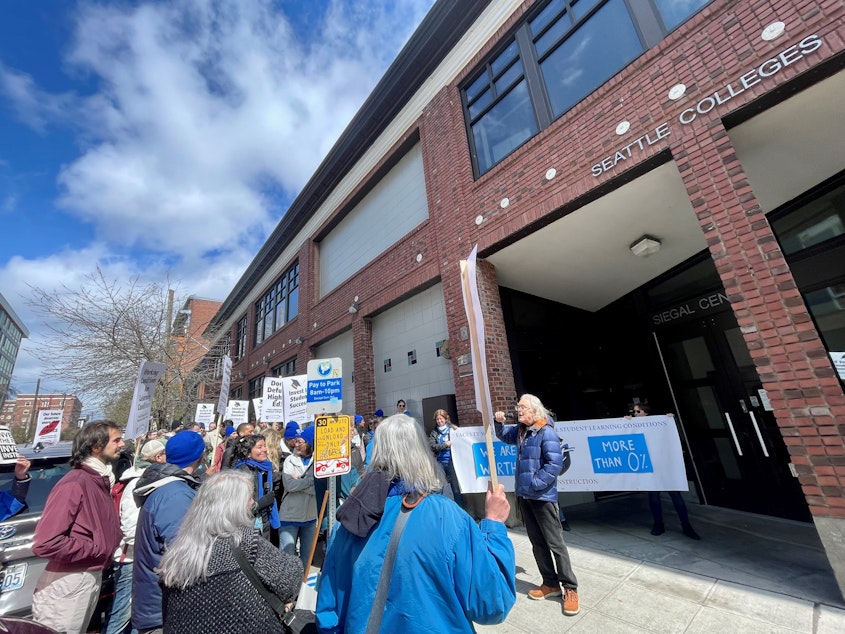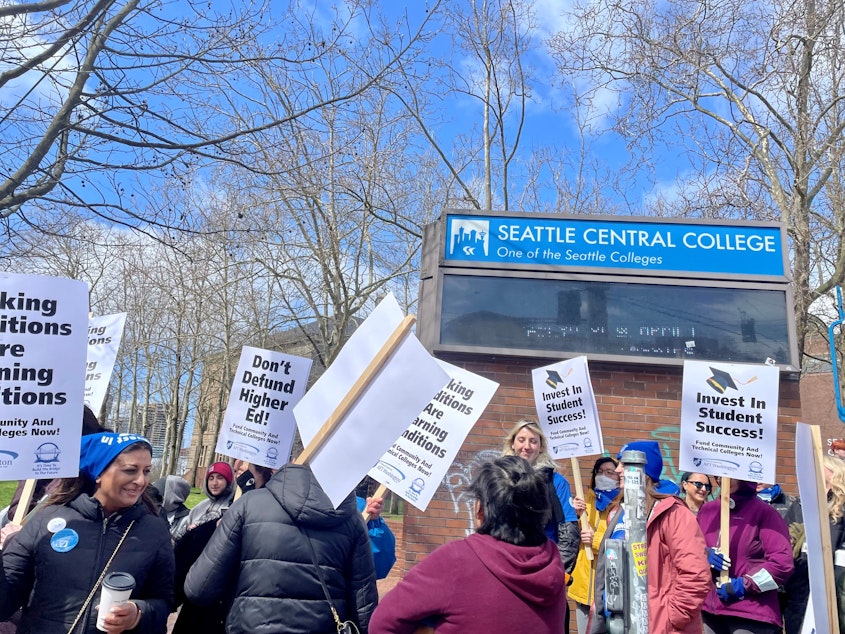Seattle Colleges staff demand equitable raises, better working conditions in walkout

Staff and students at Washington’s largest community college district — which includes Seattle Central, North Seattle, and South Seattle colleges — are demanding better working conditions and equitable pay raises.
Dozens of Seattle Colleges teachers walked out of their classes Tuesday morning. Later on, they gathered with students and other staff outside of the community college district’s headquarters, chanting and waving signs urging state lawmakers and the community college district to better support students and teachers.
The demonstration was part of an effort among Washington state’s 34 community technical colleges to protest over a decade of the legislature defunding public higher education. This, organizers say, has resulted in stagnant faculty salaries.
At Seattle Colleges, for example, organizers say staff haven’t received a significant raise since 2009.
Helena Ribeiro, an English teacher at Seattle Central College, is one of those staff members. Once her fixed bills are paid, the amount of money she has left over for groceries and medical expenses seems to keep dwindling.
Sponsored
“Especially in the last year or two, it has been really clear that I’m just not making it,” Ribeiro said. “Relying on credit cards a lot for groceries and, you know, just not being able to get out of that debt.”
Ribeiro, a former Central student, loves the college, her job, and her students. But if wages don’t improve, she might not be able to stay, she said. The American Federation of Teachers Seattle, the union representing Seattle Colleges educators like Ribeiro, remains in stalled negotiations with the community college district.

And even as wages remain stagnant, faculty say they’re being asked to do more with less. In turn, the quality of education suffers. That's why protestors also urged Seattle Colleges to provide more counseling and support for students, many of whom are struggling to keep up with rising tuition costs.
A recent National Student Clearinghouse Research Center study found the number of students attending community colleges has fallen 37 % since 2010.
Sponsored
Since Cristobal Borges started teaching at North Seattle College in 2014, he said he’s seen “progressively less” offered to students at community colleges across the state, from classes and programs, to services and other opportunities.
But at the same time, Borges feels he and other faculty are being asked to do more because resources are stretched thin. Although his job title is history teacher, he often feels like a counselor or a human resources professional, he said. He is calling on Seattle Colleges to prioritize instruction in its budget.
“We are worth more than what we expect,” Borges told a crowd at the Tuesday rally outside of Siegal Center. “We tend to undervalue ourselves. We give away our labor all the time. That’s kind of the reality of being a teacher … but we need to be provided what we are worth.”




